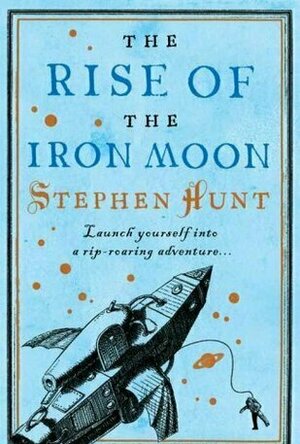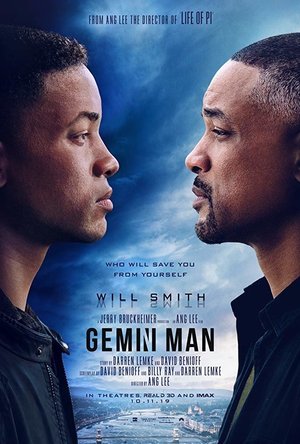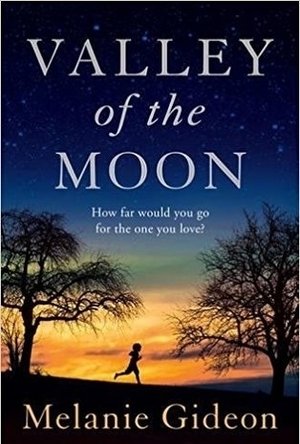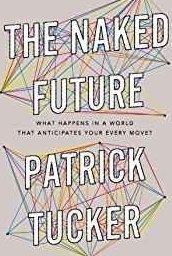Search
Search results
Phil Leader (619 KP) rated The Rise of the Iron Moon (Jackelian #3) in Books
Nov 25, 2019
This book looked interesting so I picked it up. I'd not heard of Stephen Hunt or this series but the premise intrigued me.
Although this is the third book of the series and there are plenty of references to events that must take place in the previous books, and despite the writing being immersive rather than explanatory, I found it easy to get into the story.
The world is very interesting. I have read other novels set in a faux Victorian Steampunk-like world but nothing like this. This is like an alternative history, extremely divergeant from ours but with enough similarities that the combination is quite striking.
For example there was a civil war in the past which parliament won, as in the 'real' British history. However all of the royals have been locked up ever since in the Royal Breeding House - kept as figureheads under constant house arrest and threat of execution at the whim of parliament to appease the masses.
There are also countries ruled by thinking, steam driven machines. Others beneath the waves or living strictly by some political principal.
However the world is under threat. All the countries are being slowly invaded from the North by a very aggressive foe. Under attack the land of Jackals itself calls on its heroes to save the day. Purity Blake, one of the inmates of the Royal Breeding House. Molly Templar, writer of penny dreadful science fiction stories and sometimes defender of the land. Coppertracks, a machine life steam man and scientist. Their companions must overcome impossible odds and put aside the enmity between nations to fight off the attackers. Against all the odds, can they succeed?
The book is a little slow to start up, as the characters are introduced in their diverse environments. But slowly the threads are drawn together and each play their part in the fight. And as they begin to weave into the plot the pace quickens. The story twists and turns, always astonishing in its concept and direction.
The outstanding part of this book is the imagination that has gone into it. Nearly everything is completely different from our world and yet it ties together convincingly into a land both of industry and grime, poverty and privilege but also of very real myth and legend.
The ending is a little bit Deus Ex Machina but really this fits in with the tone quite well and at least keeps the pace up in the final pages. There are enough wonderful and fantastic ideas let loose to wander around in this book for several novels.
Definitely a recommended book. I now need to search out the first book - The Court Of The Air - so I can find out what has happened to the characters before.
Although this is the third book of the series and there are plenty of references to events that must take place in the previous books, and despite the writing being immersive rather than explanatory, I found it easy to get into the story.
The world is very interesting. I have read other novels set in a faux Victorian Steampunk-like world but nothing like this. This is like an alternative history, extremely divergeant from ours but with enough similarities that the combination is quite striking.
For example there was a civil war in the past which parliament won, as in the 'real' British history. However all of the royals have been locked up ever since in the Royal Breeding House - kept as figureheads under constant house arrest and threat of execution at the whim of parliament to appease the masses.
There are also countries ruled by thinking, steam driven machines. Others beneath the waves or living strictly by some political principal.
However the world is under threat. All the countries are being slowly invaded from the North by a very aggressive foe. Under attack the land of Jackals itself calls on its heroes to save the day. Purity Blake, one of the inmates of the Royal Breeding House. Molly Templar, writer of penny dreadful science fiction stories and sometimes defender of the land. Coppertracks, a machine life steam man and scientist. Their companions must overcome impossible odds and put aside the enmity between nations to fight off the attackers. Against all the odds, can they succeed?
The book is a little slow to start up, as the characters are introduced in their diverse environments. But slowly the threads are drawn together and each play their part in the fight. And as they begin to weave into the plot the pace quickens. The story twists and turns, always astonishing in its concept and direction.
The outstanding part of this book is the imagination that has gone into it. Nearly everything is completely different from our world and yet it ties together convincingly into a land both of industry and grime, poverty and privilege but also of very real myth and legend.
The ending is a little bit Deus Ex Machina but really this fits in with the tone quite well and at least keeps the pace up in the final pages. There are enough wonderful and fantastic ideas let loose to wander around in this book for several novels.
Definitely a recommended book. I now need to search out the first book - The Court Of The Air - so I can find out what has happened to the characters before.
Gareth von Kallenbach (980 KP) rated Gemini Man (2019) in Movies
Oct 13, 2019
In the world of Covert Ops; Henry Brogan (Will Smith) is the go to man. He is a highly-skilled assassin who answers the call when he is asked to dispatch dangerous individuals that threaten the peace and stability of the world.
Henry is so skilled that he takes on impossible tasks and completes them as if they were routine as he was recruited from the Military as he stood out as a unique and talented soldier.
When a successful mission does not go as precise as he would have liked; Henry decides to retire much to the chagrin of his supervisor who wishes him well despite being upset over losing such a highly-valued asset.
Henry meets with an old friend from the military who has done very well for himself financially since his service days. He tells Henry that his last target was not a dangerous threat to the population but rather a respected genetics worker. Henry has some misgiving but realizes there may be some truth to what is being told to him and agrees to meet with a contact of the departed scientist in Hungary.
Henry’s meeting does not go unnoticed as he soon has teams of soldiers attacking him and he is forced to flee with his undercover surveillance Danny (Mary Elizabeth Winstead) as they are pursued by deadly agents at every turn.
As the pair make their way to Columbia to try to plan their next move; an elite assassin makes a move on Henry and it takes all of his skills to barely survive and encounter which leaves them scrambling for answers. As suspicions mount, Henry and his team look for answers and what the eventually discover rocks the core of their very foundation.
Henry soon finds himself facing his most dangerous enemy yet as his past has come back to haunt him and there may be no escaping the threat it poses.
The film is directed by Ang Lee and while fairly linear in plot and character development and progression; the movie does offer a fresh take on some Science Fiction staples and does raise some interesting questions in the process.
The action sequences are solid and allow for the film at moments to break into a frantic pace before throttling back. The cast is solid and Will Smith continues his impressive comeback and it was nice to see him playing a more hardened and world-weary individual despite the occasional lapses into his normal screen persona.
In the end “Gemini Man” offers some flawed but entertaining escapist entertainment that delivers all the best of what fans have come to expect from Will Smith and more.
3.5 stars out of 5
http://sknr.net/2019/10/11/gemini-man-2/
Henry is so skilled that he takes on impossible tasks and completes them as if they were routine as he was recruited from the Military as he stood out as a unique and talented soldier.
When a successful mission does not go as precise as he would have liked; Henry decides to retire much to the chagrin of his supervisor who wishes him well despite being upset over losing such a highly-valued asset.
Henry meets with an old friend from the military who has done very well for himself financially since his service days. He tells Henry that his last target was not a dangerous threat to the population but rather a respected genetics worker. Henry has some misgiving but realizes there may be some truth to what is being told to him and agrees to meet with a contact of the departed scientist in Hungary.
Henry’s meeting does not go unnoticed as he soon has teams of soldiers attacking him and he is forced to flee with his undercover surveillance Danny (Mary Elizabeth Winstead) as they are pursued by deadly agents at every turn.
As the pair make their way to Columbia to try to plan their next move; an elite assassin makes a move on Henry and it takes all of his skills to barely survive and encounter which leaves them scrambling for answers. As suspicions mount, Henry and his team look for answers and what the eventually discover rocks the core of their very foundation.
Henry soon finds himself facing his most dangerous enemy yet as his past has come back to haunt him and there may be no escaping the threat it poses.
The film is directed by Ang Lee and while fairly linear in plot and character development and progression; the movie does offer a fresh take on some Science Fiction staples and does raise some interesting questions in the process.
The action sequences are solid and allow for the film at moments to break into a frantic pace before throttling back. The cast is solid and Will Smith continues his impressive comeback and it was nice to see him playing a more hardened and world-weary individual despite the occasional lapses into his normal screen persona.
In the end “Gemini Man” offers some flawed but entertaining escapist entertainment that delivers all the best of what fans have come to expect from Will Smith and more.
3.5 stars out of 5
http://sknr.net/2019/10/11/gemini-man-2/

Doctor Who - Series 10 (New Season 10)
TV Season Watch
The tenth series of the British science fiction television programme Doctor Who premiered on 15...
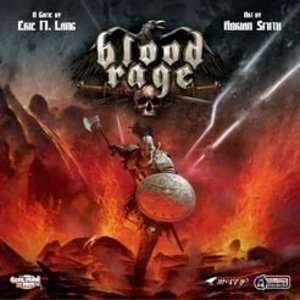
Blood Rage
Tabletop Game
"Life is Battle; Battle is Glory; Glory is ALL" In Blood Rage, each player controls their own...
Miniatures BoardGameGeekGreatness
Heather Cranmer (2721 KP) created a post
Oct 22, 2022
BankofMarquis (1832 KP) rated The Matrix Resurrections (2021) in Movies
Dec 31, 2021
Unnecessary
And now from the unnecessary sequels department…
And, that, pretty much sums up THE MATRIX RESURRECTIONS - a title that is a confession of a studio and creator that is looking to milk a few more bucks out of a dormant franchise.
Written and Directed by Lana Wachowski (one of the creators/directors of the original Matrix trilogy), MATRIX RESURRECTIONS drops us back into the Matrix that is the same, yet different, and - intriguingly enough - brings us back to Neo and Trinity, 2 characters that died in the 3rd film.
Of course, this being Science Fiction/Fantasy, no one needs to stay dead, if another story can be built around them.
Keanu Reeves and Carrie-Anne Moss are back as Neo & Trinity (this film would not have happened if they didn’t say yes to this) - and they are the best thing in this film. Their chemistry is strong and any film that can bring back Carrie-Anne Moss as a lead in a film, is okay by me.
The best newcomer in this film is Jonathan Groff as “Agent Smith” (Hugo Weaving was set to reprise his role, but had to drop out due to Theater Commitments). Groff channels his inner “King George” (the character that he was Tony Nominated for in the Stage Musical Hamilton) and it works well in this film.
As for the other “character/actors” - like the characters that Jada Pinkett-Smith (the only other returning actor from the original trilogy), Yahya Abdbul-Mateen II (playing a version of Morpheus), Thelma Hopkins, Jessica Henwick and…yes that IS Cristina Ricci - they are all pretty generic and serve as plot machinations to get us from one action set piece to another.
And, of course, there is Neil Patrick Harris as “THE ANALYST”, it’s an interesting, pivotal, role in this film and would have been better served being played by someone less “well known”. All I kept thinking as I watched this performance was - “it’s evil Neil Patrick Harris”!
As for the special effects/set pieces, they are “fine” but nothing “special”. The first Matrix film was a brilliant, groundbreaking and mind-bending piece of filmmaking that introduced cinema (for good or ill) to “bullet time” - a Special F/X that has been en vogue ever since. But this film is just a mismash of CGI that is neither brilliant nor groundbreaking and the dense mythology plot of this film is not “mind-bending”, it is more like “headache-inducing”.
Do yourself a favor and skip the Resurrection of The Matrix and, instead, check out the brilliant 1999 original - it holds up well (and is the subject of my January podcast).
Letter Grade: B- (thanks to Reeves, Moss and Groff)
6 Stars (out of 10) and you can take that to the Bank(ofMarquis)
And, that, pretty much sums up THE MATRIX RESURRECTIONS - a title that is a confession of a studio and creator that is looking to milk a few more bucks out of a dormant franchise.
Written and Directed by Lana Wachowski (one of the creators/directors of the original Matrix trilogy), MATRIX RESURRECTIONS drops us back into the Matrix that is the same, yet different, and - intriguingly enough - brings us back to Neo and Trinity, 2 characters that died in the 3rd film.
Of course, this being Science Fiction/Fantasy, no one needs to stay dead, if another story can be built around them.
Keanu Reeves and Carrie-Anne Moss are back as Neo & Trinity (this film would not have happened if they didn’t say yes to this) - and they are the best thing in this film. Their chemistry is strong and any film that can bring back Carrie-Anne Moss as a lead in a film, is okay by me.
The best newcomer in this film is Jonathan Groff as “Agent Smith” (Hugo Weaving was set to reprise his role, but had to drop out due to Theater Commitments). Groff channels his inner “King George” (the character that he was Tony Nominated for in the Stage Musical Hamilton) and it works well in this film.
As for the other “character/actors” - like the characters that Jada Pinkett-Smith (the only other returning actor from the original trilogy), Yahya Abdbul-Mateen II (playing a version of Morpheus), Thelma Hopkins, Jessica Henwick and…yes that IS Cristina Ricci - they are all pretty generic and serve as plot machinations to get us from one action set piece to another.
And, of course, there is Neil Patrick Harris as “THE ANALYST”, it’s an interesting, pivotal, role in this film and would have been better served being played by someone less “well known”. All I kept thinking as I watched this performance was - “it’s evil Neil Patrick Harris”!
As for the special effects/set pieces, they are “fine” but nothing “special”. The first Matrix film was a brilliant, groundbreaking and mind-bending piece of filmmaking that introduced cinema (for good or ill) to “bullet time” - a Special F/X that has been en vogue ever since. But this film is just a mismash of CGI that is neither brilliant nor groundbreaking and the dense mythology plot of this film is not “mind-bending”, it is more like “headache-inducing”.
Do yourself a favor and skip the Resurrection of The Matrix and, instead, check out the brilliant 1999 original - it holds up well (and is the subject of my January podcast).
Letter Grade: B- (thanks to Reeves, Moss and Groff)
6 Stars (out of 10) and you can take that to the Bank(ofMarquis)
Character development (2 more)
Background
Story and plot = top notch
Amazing and will leave you on the edge of your seat!
As many of you know, I've struggled at getting into audio books but I think I've finally started to come around to the idea of them. I was given two free months of Scribd to try out and this is the second audio book that I've listened too.
At first, I wasn't too big of a fan of the narrator. She just sounded like she didn't give any care in the world and to be honest, her voice was very high pitched and rather annoying. Well, once we got into a little bit deeper into the story, the narrator actually grew on me. Don't judge a book by it's cover, I know I know. I'm rather bad at that haha.
“You have to learn to look at the whole of something, not just the parts.”
One thing that I rather liked about Warcross was that it delved into depression and loss a tad bit. Authors that can work that angle along with including a mass amount of diversity into their stories really are amazing human beings.
I absolutely love reading YA that includes diversity such as different ethnicity and LGBTQ+. Warcross has it both, and even has the main character, Emika, as a POC. This really brought the novel together and created this colorful novel that left me on the edge of my seat.
“It is hard to describe loss to someone who has never experienced it, impossible to explain all the ways it changes you. But for those who have, not a single word is needed.”
Warcross begins by following Emika in her journey of catching someone who has been illegally gambling within the game Warcross. She works as a bounty hunter and is rather good at her job. But, the main problem that she has is there are so many bounty hunters out there, so jobs are not quite an easy thing to get. This doesn't help Emika's debt problem at all. She's on the verge of losing her apartment and being put on the side of the street.
Opening ceremony night comes for the Warcross championships and Emika accidentally hacks into it. The creator of Warcross, Hideo Tanaka, ends up contacting her and hiring Emika as a bounty hunter to catch Zero. But what Emika doesn't realize is that she will be joining the championship as well to act as a spy. She is thrown in and immediately picked as a wildcard. But the journey she's about to take isn't what it's all put out to be.
Danger lurks behind every corner and people are not who they truly say they are. For Emika's in a life and death battle that could drastically change the future.
“Everyone has a different way of escaping the dark stillness of their mind.”
Characters:
Emika Chen - bounty hunter, hacker, the main character who has rainbow dyed hair and is an absolute rockin' badass.
Hideo Tanaka - billionaire creator of Warcross and eventually a love interest to Emika
Sasuke Tanaka - brother to Hideo, he was kidnapped at a young age and nobody knows if he's even alive.
Zero - the antagonist, or so we thought. Emika is trying to catch him.
Hammie, Roshan, DJ Ren, & Asher - members of the Phoenix Riders
Reasons why I rated it 5 stars:
1. The plot was top notch, absolutely amazing, and one of the best I've seen in awhile!
2. I will be rereading this once I get my hands on a physical copy. I may even re-listen to the audio book. It was just that good!
3. There is so much character and story development within the story and Marie Lu is a breath of fresh air. Not only did she include development, but there was background and representation!
4. Grammar and spelling isn't being counted against because I have no idea. It sounded good, but the narrator could have fixed stuff. Like I literally have no idea what the writing is like since I listened to Warcross on audio book.
5. The overall story left me wanting more of Warcross, more of Emika, more of what's in store for Emika. I just NEED MORE!
"Everything's science fiction until someone makes it science fact.”
At first, I wasn't too big of a fan of the narrator. She just sounded like she didn't give any care in the world and to be honest, her voice was very high pitched and rather annoying. Well, once we got into a little bit deeper into the story, the narrator actually grew on me. Don't judge a book by it's cover, I know I know. I'm rather bad at that haha.
“You have to learn to look at the whole of something, not just the parts.”
One thing that I rather liked about Warcross was that it delved into depression and loss a tad bit. Authors that can work that angle along with including a mass amount of diversity into their stories really are amazing human beings.
I absolutely love reading YA that includes diversity such as different ethnicity and LGBTQ+. Warcross has it both, and even has the main character, Emika, as a POC. This really brought the novel together and created this colorful novel that left me on the edge of my seat.
“It is hard to describe loss to someone who has never experienced it, impossible to explain all the ways it changes you. But for those who have, not a single word is needed.”
Warcross begins by following Emika in her journey of catching someone who has been illegally gambling within the game Warcross. She works as a bounty hunter and is rather good at her job. But, the main problem that she has is there are so many bounty hunters out there, so jobs are not quite an easy thing to get. This doesn't help Emika's debt problem at all. She's on the verge of losing her apartment and being put on the side of the street.
Opening ceremony night comes for the Warcross championships and Emika accidentally hacks into it. The creator of Warcross, Hideo Tanaka, ends up contacting her and hiring Emika as a bounty hunter to catch Zero. But what Emika doesn't realize is that she will be joining the championship as well to act as a spy. She is thrown in and immediately picked as a wildcard. But the journey she's about to take isn't what it's all put out to be.
Danger lurks behind every corner and people are not who they truly say they are. For Emika's in a life and death battle that could drastically change the future.
“Everyone has a different way of escaping the dark stillness of their mind.”
Characters:
Emika Chen - bounty hunter, hacker, the main character who has rainbow dyed hair and is an absolute rockin' badass.
Hideo Tanaka - billionaire creator of Warcross and eventually a love interest to Emika
Sasuke Tanaka - brother to Hideo, he was kidnapped at a young age and nobody knows if he's even alive.
Zero - the antagonist, or so we thought. Emika is trying to catch him.
Hammie, Roshan, DJ Ren, & Asher - members of the Phoenix Riders
Reasons why I rated it 5 stars:
1. The plot was top notch, absolutely amazing, and one of the best I've seen in awhile!
2. I will be rereading this once I get my hands on a physical copy. I may even re-listen to the audio book. It was just that good!
3. There is so much character and story development within the story and Marie Lu is a breath of fresh air. Not only did she include development, but there was background and representation!
4. Grammar and spelling isn't being counted against because I have no idea. It sounded good, but the narrator could have fixed stuff. Like I literally have no idea what the writing is like since I listened to Warcross on audio book.
5. The overall story left me wanting more of Warcross, more of Emika, more of what's in store for Emika. I just NEED MORE!
"Everything's science fiction until someone makes it science fact.”
Hazel (1853 KP) rated Valley of the Moon in Books
Dec 17, 2018
<i>I received this book for free through Goodreads First Reads.</i>
For fans of <i>The Time Traveler’s Wife</i> (Niffenegger, 2003) this captivating story by Melanie Gideon is an alluring, spellbinding work of fiction about loving, being loved and finding somewhere you belong. With a touch of time travel in an otherwise typical reality,<i> Valley of the Moon </i>will excite, enrapture and touch readers’ hearts.
It is difficult to give a synoptic review without giving too much of the plot away. In short, the book contains the two lives of complete strangers who meet under extremely unlikely circumstances. It is 1975 and Lux Lysander is struggling to make ends meet as a single mother in San Francisco. Estranged from her parents, Benno has become her life; Lux would do anything for him. The other half of the story begins in 1906 in the Californian Sonoma Valley. Joseph has achieved his dream of creating an Edenic community where races and classes can live in harmony. Greengage is a self-sufficient society where everyone is seen as equal, however, something happens to shake up the peace – literally. A huge earthquake mysteriously leaves the valley unharmed but completely surrounded by a deadly fog. No one can leave and no one can enter, that is until Lux does.
Until the two characters’ lives collide, the narrative is fairly typical, but it quickly takes on a theme that most minds would attempt to debunk. Through a wall of fog, Lux can pass between 1975 and 1906, whereas Joseph and his friends can only stay in their own timeline. Lux begins to live a double life: one with her son Benno and one with the antiquated lifestyle of the Greengage community. Unfortunately, it is only possible to pass through the fog on a fall moon, and not necessarily every month.
Lux’s modern appearance and colloquialisms baffle the community but she soon finds herself a place amongst the inhabitants. For a while, Lux is able to keep her two lives separate, but one slip up causes her to temporarily lose the love and trust of her only son. Torn between her own flesh and blood and the only place she feels she belongs, Lux has to decide how far she would go for the people she loves.
One of the key themes of the novel is relationship. Although romance develops toward the latter stages of the story, the majority is focused on familial love and love between friends. Lux and Benno’s relationship is particularly important, especially when their love becomes strained by Lux’s secret dalliance with the past. The other significant theme is about finding oneself. Lux lives in an era where, despite developments in women’s equality, single mothers are still shunned. Conversely, in 1906 where historically things were worse for women, the egalitarian society feels much more like home.
Lux’s temerity is to be admired as she continues to visit the past despite it being beyond the bounds of possibility. More applaudable is her determination to win back her son as well as her distant parents.
Despite being set for the most part in the 1970s and 80s, <i>Valley of the Moon</i> has a futuristic air about it, with an element of fantasy and science fiction. It is almost a version of <i>The Lion, the Witch and the Wardrobe</i> (Lewis, 1950) but for adults, with more realistic themes. Melanie Gideon admits that she got the idea for the novel from the film <i>Brigadoon</i> (1954) in which the protagonist stumbles across a magical land in the woods. With similarities, Gideon has created her own version of this fairy-tale-like scenario.
Journeying through a range of emotions, <i>Valley of the Moon</i> is a story that engages readers from beginning to end. With ups and downs, the author explores the lives and personalities of the main characters, which develop beautifully over time. This book is not one likely to disappoint its readers.
For fans of <i>The Time Traveler’s Wife</i> (Niffenegger, 2003) this captivating story by Melanie Gideon is an alluring, spellbinding work of fiction about loving, being loved and finding somewhere you belong. With a touch of time travel in an otherwise typical reality,<i> Valley of the Moon </i>will excite, enrapture and touch readers’ hearts.
It is difficult to give a synoptic review without giving too much of the plot away. In short, the book contains the two lives of complete strangers who meet under extremely unlikely circumstances. It is 1975 and Lux Lysander is struggling to make ends meet as a single mother in San Francisco. Estranged from her parents, Benno has become her life; Lux would do anything for him. The other half of the story begins in 1906 in the Californian Sonoma Valley. Joseph has achieved his dream of creating an Edenic community where races and classes can live in harmony. Greengage is a self-sufficient society where everyone is seen as equal, however, something happens to shake up the peace – literally. A huge earthquake mysteriously leaves the valley unharmed but completely surrounded by a deadly fog. No one can leave and no one can enter, that is until Lux does.
Until the two characters’ lives collide, the narrative is fairly typical, but it quickly takes on a theme that most minds would attempt to debunk. Through a wall of fog, Lux can pass between 1975 and 1906, whereas Joseph and his friends can only stay in their own timeline. Lux begins to live a double life: one with her son Benno and one with the antiquated lifestyle of the Greengage community. Unfortunately, it is only possible to pass through the fog on a fall moon, and not necessarily every month.
Lux’s modern appearance and colloquialisms baffle the community but she soon finds herself a place amongst the inhabitants. For a while, Lux is able to keep her two lives separate, but one slip up causes her to temporarily lose the love and trust of her only son. Torn between her own flesh and blood and the only place she feels she belongs, Lux has to decide how far she would go for the people she loves.
One of the key themes of the novel is relationship. Although romance develops toward the latter stages of the story, the majority is focused on familial love and love between friends. Lux and Benno’s relationship is particularly important, especially when their love becomes strained by Lux’s secret dalliance with the past. The other significant theme is about finding oneself. Lux lives in an era where, despite developments in women’s equality, single mothers are still shunned. Conversely, in 1906 where historically things were worse for women, the egalitarian society feels much more like home.
Lux’s temerity is to be admired as she continues to visit the past despite it being beyond the bounds of possibility. More applaudable is her determination to win back her son as well as her distant parents.
Despite being set for the most part in the 1970s and 80s, <i>Valley of the Moon</i> has a futuristic air about it, with an element of fantasy and science fiction. It is almost a version of <i>The Lion, the Witch and the Wardrobe</i> (Lewis, 1950) but for adults, with more realistic themes. Melanie Gideon admits that she got the idea for the novel from the film <i>Brigadoon</i> (1954) in which the protagonist stumbles across a magical land in the woods. With similarities, Gideon has created her own version of this fairy-tale-like scenario.
Journeying through a range of emotions, <i>Valley of the Moon</i> is a story that engages readers from beginning to end. With ups and downs, the author explores the lives and personalities of the main characters, which develop beautifully over time. This book is not one likely to disappoint its readers.
Gareth von Kallenbach (980 KP) rated Fifty Shades of Grey (2015) in Movies
Aug 6, 2019
remember thinking, after reading the first couple of chapters of Fifty Shades of Grey two years ago, “Is this guy a vampire?” E.L. James’ description of Christian Grey brought to mind Edward of the Twilight series and the heroine, Anastasia Steele’s clumsy entrance into Grey’s office reminded me of Bella. I was so certain I would find out Grey was a vampire in the following chapters.
So it wasn’t too much of a surprise for me when I learned the book started out as Twilight fan fiction. The hero and heroine were clearly patterned after Bella and Edward. So whenever someone asked me what the book was about, I would tell them, “It’s an awfully written Twilight with a lot of sex and some bondage and spanking. “ That being said, I’m hardly a book snob. I’ll read just about anything, and while I may complain the whole time, I’ll finish the series if one exists. But even casual readers should be able to recognize badly written fiction when it smacks them in the face like Fifty Shades of Grey.
When I heard they were making a movie, I figured it would be a Rated R or NC-17 version Twilight. I played the game along with other millions of women on who should be the leads. I picked Anna Kendrick and Ian Somerhalder. I wasn’t too disappointed with the actual picks (I think that required actually caring), but the trailers did not endear Dakota Johnson to me at all. On the way to the screener, I joked with my husband, Gareth, that I expected to see Dakota Johnson and Jamie Dornan doing a lot of gasping or scowling with mouth agape since that seemed to be their go-to reactions in the book. (James is fond of writing about jaw-drops and sharp intakes of breath in her books).
I had to make him promise to refrain from making Mystery Science Theater 3000 commentary during the movie, but within the first 5 minutes he recognized some landmarks and leaned over to ask “Wait. She went to WSU?” When I nodded, Gareth, a proud UW Husky, leaned back, shook his head and muttered, “Already disappointed.” We both actually enjoyed seeing the Seattle backdrop, all shiny and urbane, at least in Grey’s world. I thought Gareth was talking about the ridiculousness of Christian Grey’s wealth when he whispered, “This movie is so full of it.” I raised my eyebrows at him and he said, “You know you can’t find parking that easily in Seattle.”
Being familiar with the books, I knew what to expect and for the most part, director Sam Taylor-Johnson, greatly improved on weak source material. Dakota Johnson was a pleasant surprise, making Anastasia smart, witty and much more relatable than the book Ana. Jamie Dornan was very easy to look at. Listening to? Not so much. It’s been reported that E. L. James’ insisted the dialogue from her books remain unchanged. One wonders if she also insisted Dornan deliver his parts as if he were reading her book. Reluctantly and under great duress.
Fans of the books will notice a few changes, and of course it won’t be as graphic as the book, but there are at least 25 minutes of steamy scenes. All in all, this may be one of those rare times the movie is better than the book. Like the books, now that I’m invested, I will watch the next two in the trilogy. Mainly thanks to Dakota Johnson. If nothing else, I have to give Fifty Shades of Grey credit for inspiring passion – in debates about abusive relationships, true BDSM and the age-old bad boy vs. good men attraction. I don’t think I’ve engaged in this many debates with friends and coworkers about a non-sci-fi movie before. It could very well inspire all kinds of other passion for those who give in and escort their significant other to this movie this weekend. But hopefully, unlike the leads in the movie, those inspired will reach a satisfying finish rather than a stylized fade-out to the morning after.
So it wasn’t too much of a surprise for me when I learned the book started out as Twilight fan fiction. The hero and heroine were clearly patterned after Bella and Edward. So whenever someone asked me what the book was about, I would tell them, “It’s an awfully written Twilight with a lot of sex and some bondage and spanking. “ That being said, I’m hardly a book snob. I’ll read just about anything, and while I may complain the whole time, I’ll finish the series if one exists. But even casual readers should be able to recognize badly written fiction when it smacks them in the face like Fifty Shades of Grey.
When I heard they were making a movie, I figured it would be a Rated R or NC-17 version Twilight. I played the game along with other millions of women on who should be the leads. I picked Anna Kendrick and Ian Somerhalder. I wasn’t too disappointed with the actual picks (I think that required actually caring), but the trailers did not endear Dakota Johnson to me at all. On the way to the screener, I joked with my husband, Gareth, that I expected to see Dakota Johnson and Jamie Dornan doing a lot of gasping or scowling with mouth agape since that seemed to be their go-to reactions in the book. (James is fond of writing about jaw-drops and sharp intakes of breath in her books).
I had to make him promise to refrain from making Mystery Science Theater 3000 commentary during the movie, but within the first 5 minutes he recognized some landmarks and leaned over to ask “Wait. She went to WSU?” When I nodded, Gareth, a proud UW Husky, leaned back, shook his head and muttered, “Already disappointed.” We both actually enjoyed seeing the Seattle backdrop, all shiny and urbane, at least in Grey’s world. I thought Gareth was talking about the ridiculousness of Christian Grey’s wealth when he whispered, “This movie is so full of it.” I raised my eyebrows at him and he said, “You know you can’t find parking that easily in Seattle.”
Being familiar with the books, I knew what to expect and for the most part, director Sam Taylor-Johnson, greatly improved on weak source material. Dakota Johnson was a pleasant surprise, making Anastasia smart, witty and much more relatable than the book Ana. Jamie Dornan was very easy to look at. Listening to? Not so much. It’s been reported that E. L. James’ insisted the dialogue from her books remain unchanged. One wonders if she also insisted Dornan deliver his parts as if he were reading her book. Reluctantly and under great duress.
Fans of the books will notice a few changes, and of course it won’t be as graphic as the book, but there are at least 25 minutes of steamy scenes. All in all, this may be one of those rare times the movie is better than the book. Like the books, now that I’m invested, I will watch the next two in the trilogy. Mainly thanks to Dakota Johnson. If nothing else, I have to give Fifty Shades of Grey credit for inspiring passion – in debates about abusive relationships, true BDSM and the age-old bad boy vs. good men attraction. I don’t think I’ve engaged in this many debates with friends and coworkers about a non-sci-fi movie before. It could very well inspire all kinds of other passion for those who give in and escort their significant other to this movie this weekend. But hopefully, unlike the leads in the movie, those inspired will reach a satisfying finish rather than a stylized fade-out to the morning after.
BookblogbyCari (345 KP) rated The Naked Future in Books
Aug 5, 2018
Book Review by Cari Mayhew. Rating 7.5/10
This is a book about how the digital footprint we leave behind us can be used to make predictions about our future in all aspects of our lives. But are we seeing the coming to being of a dystopian science fiction, or are we tapping into a new superpower?
Every app on every device we use leaves a digital trail about us, and this has implications in the fields of medicine and the spread of infections, education and learning, and crime prediction, through to movie preference and dating.
The book predominantly examines the value to society in general but also looks at the benefits to the individual. Of course, these benefits come at a cost to our privacy, which the book also briefly addresses. Each chapter is centered on its own topic. I will mention each but in the interests of brevity won’t go into detail on each topic.
Chapter 1 begins by describing how certain apps can be extremely useful warning providers, but by the end of the chapter, we are looking at how your smartphone apps can be used to locate you, even when your GPS is turned off and you’re not geo-tagging posts or tweets. With modern statistical models and enough data points, it’s possible to predict where you will be down to the hour and within a square block one and a half years from now. Turning off your GPS doesn't actually make you less predictable, it just makes your predictability level harder to detect - your future remains naked.
Similarly, in Chapter 2 which examines deliberate self-tracking, Tucker notes that Fitbit users who are confused or ignorant of the device’s privacy settings are inadvertently sharing the data details of their sexual activity.
This seems like frightening stuff, but then the conversation turns to more benevolent uses of such technology. Chapter 3, by way of an imagined story, examines how such technology can be used to predict the spread of dangerous infections, including the identification of new strains of virus as new mutations occur.
Chapter 4 looks at the use of such technology in weather forecasting, and how it’s been used to make way for insurance against the effects of the weather for affected businesses. Chapter 5 explores how movie/book choice and ratings can be used to predict what makes a good movie/book.
We go back to the frightening stuff in Chapter 6. Here Tucker talks about how the smartphone has become the ultimate shopping accessory. Knowing what habitual time an individual wants a coffee, cig, or beer, is ideal for online advertisers, who will be able to send you a voucher/coupon or a mere suggestion right there on the spot. There could also be surveillance systems examining what you pick up and consider buying but don't put into basket /trolley. Tucker goes on to describe how data brokers such as Acxiom have begun selling on to advertisers access to not only your data to also to your future decisions.
Chapter 7 looks at education and learning, and makes the following good points: “What telemetric education offers is the chance for all students to raise their hands and be heard, without fear of confirming some unflattering, broadly held perception about their social group.” And “Imagine for a moment the power of knowing beforehand how well you would perform on a test but how disempowered you would feel if that same future was naked to your competition, or to your future potential employers.”
I like the title of chapter 8 “When Your Phone Says You’re In Love”. Here Tucker tells how online dating sites have become a living social science lab. Again here your personal details can be sold on. In the future, you could be rating your actual get-togethers on the app. Already invented is a “sociometer” which detects unconscious biological signals which show what role you’re taking in a conversation, and can then produce predictions on how the rest of the conversation will go.
Chapters 9 and 10 look at predictions in the where, when and who of acts of crime. He discusses where it has worked so far. But on this Tucker says “Predictive policing in the wrong hands looks less like a boon to public safety and more like a totalitarian hammer.”
The book concludes with Chapter 11, titled “The World That Anticipates Your Every Move”. Here one interviewee said as “Privacy is a blip on the radar of history.” Indeed the chapter ends with an obituary to privacy, where Tucker says “we will feel increasingly powerless against the tide of transparency rendering this planet in a new form as surely as the movement of glaciers carved our canyons and valleys.”
I’ve highlighted here the more worrisome aspects of the topics, but it’s important to note that Tucker does aim to offer a prescription for the situation, though it’s spread out in occasional paragraphs here and there rather than as a useful reference at the end. That said I found the actionable advice was rather brief and unoriginal.
Tucker presents a fair and balanced view of this important and highly relevant topic of our times, and the book is clearly well-researched. Some chapters show a little humor which was fun, but although the book is aimed at the layman, I often felt like I was reading a science textbook. The book is a real eye-opener, especially if it’s something you hadn’t given much thought to. The overall message of the book is clear: our data is already out there, but it’s ours first and foremost, and we can be savvy and use it to our advantage.
This is a book about how the digital footprint we leave behind us can be used to make predictions about our future in all aspects of our lives. But are we seeing the coming to being of a dystopian science fiction, or are we tapping into a new superpower?
Every app on every device we use leaves a digital trail about us, and this has implications in the fields of medicine and the spread of infections, education and learning, and crime prediction, through to movie preference and dating.
The book predominantly examines the value to society in general but also looks at the benefits to the individual. Of course, these benefits come at a cost to our privacy, which the book also briefly addresses. Each chapter is centered on its own topic. I will mention each but in the interests of brevity won’t go into detail on each topic.
Chapter 1 begins by describing how certain apps can be extremely useful warning providers, but by the end of the chapter, we are looking at how your smartphone apps can be used to locate you, even when your GPS is turned off and you’re not geo-tagging posts or tweets. With modern statistical models and enough data points, it’s possible to predict where you will be down to the hour and within a square block one and a half years from now. Turning off your GPS doesn't actually make you less predictable, it just makes your predictability level harder to detect - your future remains naked.
Similarly, in Chapter 2 which examines deliberate self-tracking, Tucker notes that Fitbit users who are confused or ignorant of the device’s privacy settings are inadvertently sharing the data details of their sexual activity.
This seems like frightening stuff, but then the conversation turns to more benevolent uses of such technology. Chapter 3, by way of an imagined story, examines how such technology can be used to predict the spread of dangerous infections, including the identification of new strains of virus as new mutations occur.
Chapter 4 looks at the use of such technology in weather forecasting, and how it’s been used to make way for insurance against the effects of the weather for affected businesses. Chapter 5 explores how movie/book choice and ratings can be used to predict what makes a good movie/book.
We go back to the frightening stuff in Chapter 6. Here Tucker talks about how the smartphone has become the ultimate shopping accessory. Knowing what habitual time an individual wants a coffee, cig, or beer, is ideal for online advertisers, who will be able to send you a voucher/coupon or a mere suggestion right there on the spot. There could also be surveillance systems examining what you pick up and consider buying but don't put into basket /trolley. Tucker goes on to describe how data brokers such as Acxiom have begun selling on to advertisers access to not only your data to also to your future decisions.
Chapter 7 looks at education and learning, and makes the following good points: “What telemetric education offers is the chance for all students to raise their hands and be heard, without fear of confirming some unflattering, broadly held perception about their social group.” And “Imagine for a moment the power of knowing beforehand how well you would perform on a test but how disempowered you would feel if that same future was naked to your competition, or to your future potential employers.”
I like the title of chapter 8 “When Your Phone Says You’re In Love”. Here Tucker tells how online dating sites have become a living social science lab. Again here your personal details can be sold on. In the future, you could be rating your actual get-togethers on the app. Already invented is a “sociometer” which detects unconscious biological signals which show what role you’re taking in a conversation, and can then produce predictions on how the rest of the conversation will go.
Chapters 9 and 10 look at predictions in the where, when and who of acts of crime. He discusses where it has worked so far. But on this Tucker says “Predictive policing in the wrong hands looks less like a boon to public safety and more like a totalitarian hammer.”
The book concludes with Chapter 11, titled “The World That Anticipates Your Every Move”. Here one interviewee said as “Privacy is a blip on the radar of history.” Indeed the chapter ends with an obituary to privacy, where Tucker says “we will feel increasingly powerless against the tide of transparency rendering this planet in a new form as surely as the movement of glaciers carved our canyons and valleys.”
I’ve highlighted here the more worrisome aspects of the topics, but it’s important to note that Tucker does aim to offer a prescription for the situation, though it’s spread out in occasional paragraphs here and there rather than as a useful reference at the end. That said I found the actionable advice was rather brief and unoriginal.
Tucker presents a fair and balanced view of this important and highly relevant topic of our times, and the book is clearly well-researched. Some chapters show a little humor which was fun, but although the book is aimed at the layman, I often felt like I was reading a science textbook. The book is a real eye-opener, especially if it’s something you hadn’t given much thought to. The overall message of the book is clear: our data is already out there, but it’s ours first and foremost, and we can be savvy and use it to our advantage.
